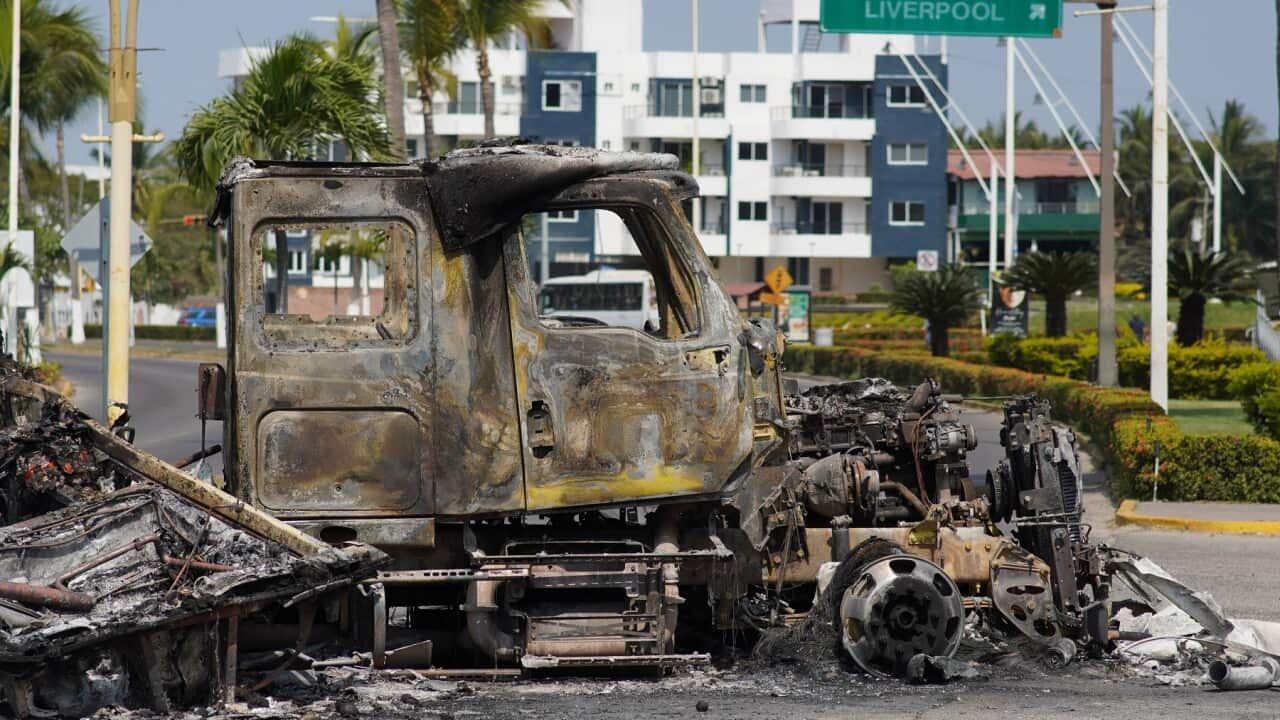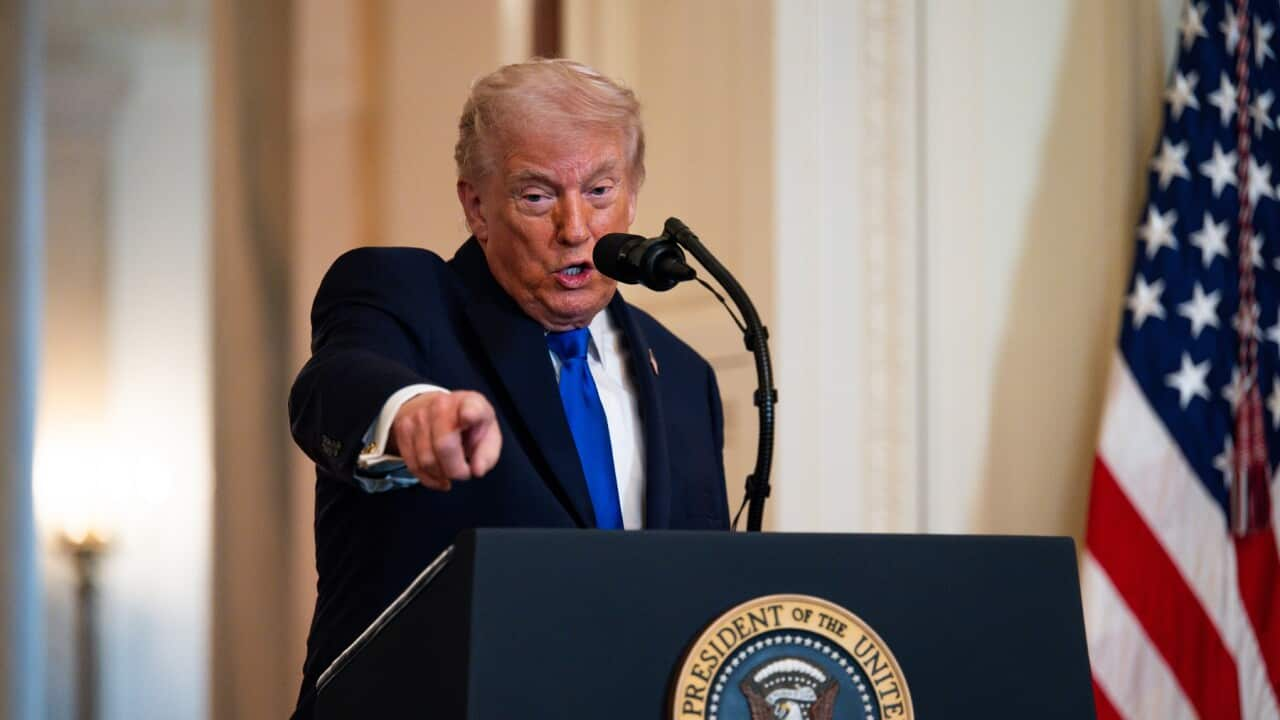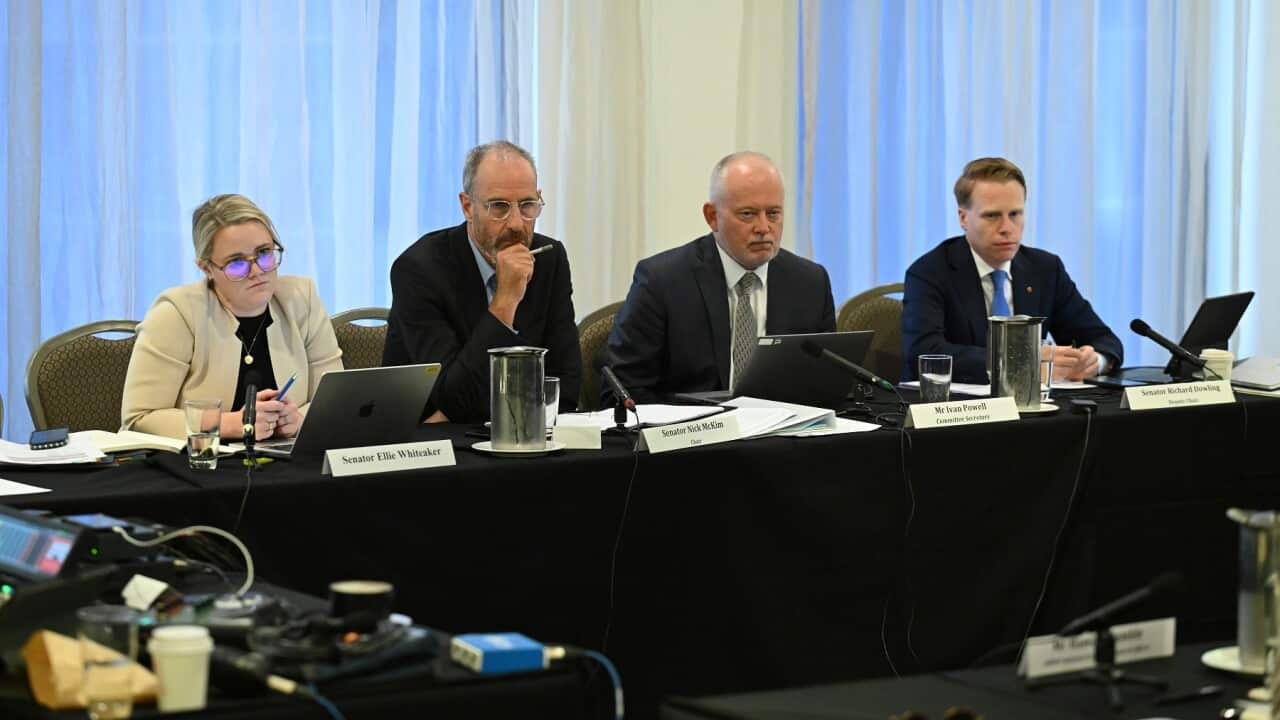Listen to Australian and world news, and follow trending topics with SBS News Podcasts.
TRANSCRIPT
In what could be the first glimmer of hope in nearly three years of war, Sudan’s paramilitary Rapid Support Forces, the RSF, has said it will accept a humanitarian truce proposed by a group of mediators known as the Quad: the United States, Saudi Arabia, the United Arab Emirates, and Egypt.
RSF spokesperson Al-Fateh Qurashi Bashir, says the group agreed to the plan because of the desperate needs of civilians.
“In response to the aspirations and interests of the Sudanese people, the Rapid Support Forces affirm their agreement to enter the humanitarian truce proposed by the Quartet countries. ... This agreement aims to address the catastrophic humanitarian consequences of the war and to enhance the protection of civilians through the completion of the provisions of the humanitarian truce agreement, enabling the urgent delivery of humanitarian aid to all Sudanese people.”
He went on to say the truce could be the start of wider peace talks.
“The Rapid Support Forces also look forward to implementing the agreement and immediately beginning discussions on arrangements for a cessation of hostilities and the core principles governing the political process in Sudan. This would help address the root causes of the conflicts, end the suffering of the Sudanese people, and create a conducive environment for a just, comprehensive, and lasting peace.”
The RSF claims the pause will allow aid to reach trapped communities, but the Sudanese Army, its main rival, hasn’t agreed to the same terms.
Sudanese Army officials said they’d only accept a truce if RSF fighters withdraw from civilian areas and disarm.
Mujahid Bahr-el-Din is among those displaced by the fighting.
“We hope that things would go back to what they used to be and for people to go back to their lands. War is not good, I swear to God, people were destroyed, youths were lost, and families were lost. We don’t have anything to say, we just want the country to be fixed. We wish the country would be fixed, for people to return to their lands and to live in peace and security.”
Another displaced Sudanese civilian, Mazin Al-Harith, has lost faith in any ceasefire actually holding.
“Whether the RSF militia has agreed or not (to the ceasefire), they will not stick to it, like what happened in previous agreements, like Jeddah agreement and all the other agreements and there was ceasefire at the beginning of this crisis, the crisis of war. So, the RSF militia never stuck to the ceasefire.”
Meanwhile, a senior US adviser, Massad Boulos, earlier this week said the proposal is part of a longer process.
“We came up with a comprehensive plan that has a clear road map with a timeline. So, the timeline starts with the three-month truce, humanitarian truce that we're talking about now, and then the nine-month process, political process, and all the other details. ... But what happened in Al-Fasher in the last ten days is extremely sad. And it's a city that had been under siege anyway for the last year-and-a-half. But the atrocities that we've seen, of course, are totally unacceptable. And we put out clear statements to that effect, condemning what happened.”
The war began in April 2023 when the RSF and the Sudanese army, once allies in Sudan’s post-Bashir transition, split over power-sharing and force integration.
Since then, tens of thousands have been killed and millions displaced.
Previous ceasefires have failed, and many doubt this one will hold.
The RSF’s capture of Al Fasher, the army’s last stronghold in Darfur, has sparked reports of mass killings, rape, and torture.
From her shelter, survivor Rawda Mohamed recalls the horror she fled.
“We walked in the streets for two days on our feet. If the RSF found you, they beat you. We saw beating, raping, whipping. They were whipping people with anything, even running people over with their cars.”
Another survivor, Othman Mohamed, a teacher from Al Fasher, gave a similar account.
“We lived through a very big crisis in Al Fasher, through the continuous shelling by drones, artillery and random bullets. There was also a complete siege. There was no food at all. It was a tragedy. On the streets. There were dead bodies. There were people who collapsed because of the walking exhaustion and harassment.”
Human rights monitors say the violence in Darfur shows signs of ethnic cleansing, with satellite images revealing fresh mass graves near Al Fasher.
The RSF now controls most of Darfur and parts of Kordofan, and fighting is spreading toward El Obeid.
Prime Minister Kamel Idris has warned the conflict could destabilise the region.
Tens of thousands are fleeing, and aid groups at Al-Affad camp say they are overwhelmed as families arrive from Darfur with nothing.
Shashwat Saraf with the Norwegian Refugee Council says many displaced people are still unaccounted for.
“The situation which is very concerning for us is that there were supposed to be around 260,000 people in Al-Fasher and so far, we've only seen the arrival of 6,000 people. Our worry is that we don't know where the remaining 250,000 people are. It's shocking, it's disturbing to see when people arrive into Tawila and the conditions they are in.”
The RSF’s announcement offers a sliver of hope, but hope alone won’t feed the hungry or bury the dead.
Whether this truce marks a turning point will depend on both sides ceasing fire and allowing aid through.













